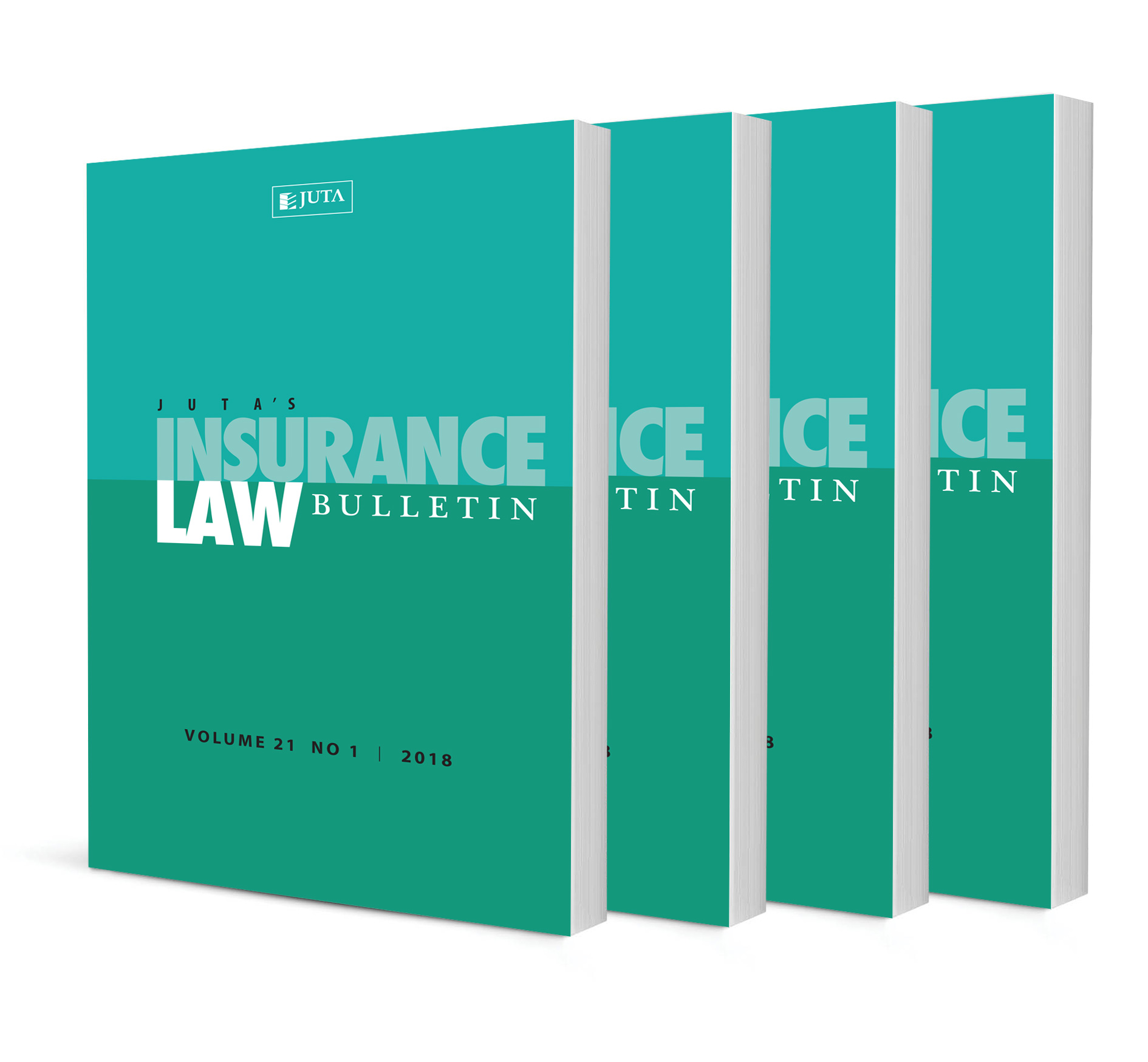Cases: Azrapart (Pty) Ltd and Another v AIG South Africa Limited and Others Case no 049359/2022; 2024 JDR 1836 (GJ)

Cases: Azrapart (Pty) Ltd and Another v AIG South Africa Limited and Others Case no 049359/2022; 2024 JDR 1836 (GJ)
Author Daleen Millard
ISSN: 2517-9543
Affiliations: Dean: Faculty of Law, Thompson Rivers University
Source: Juta’s Insurance Law Bulletin, Volume 27 Issue 2, 2024, p. 25 – 27
Abstract
None